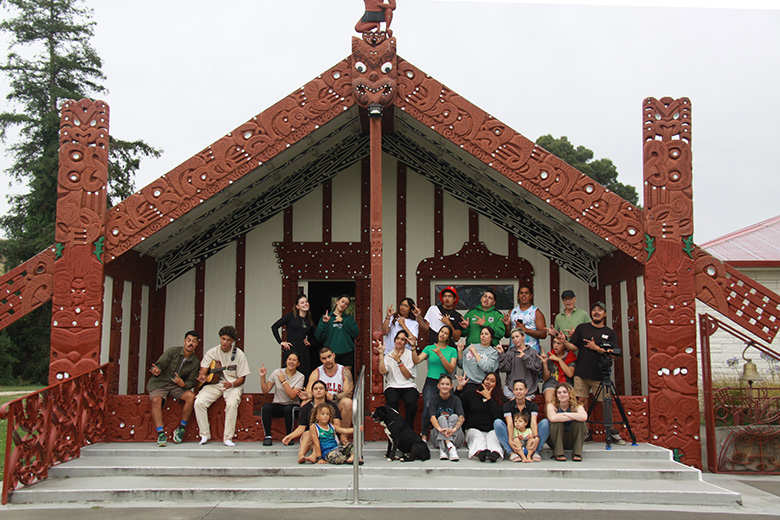A 20-week social media campaign driven by rangatahi (youth) Māori aims to spread crucial messages about nutrition and well-being across New Zealand.
The Manaora Rangatahi Guidelines is part of Nourishing Hawke’s Bay: He wairua tō te kai, a collaborative local project between EIT | Te Pūkenga and University of Auckland (UoA).
The initiative stems from the creative minds of rangatahi, who, seeking something more relatable than the existing Ministry of Health guidelines crafted 20 powerful messages of their own.
The guidelines emphasise a balanced lifestyle which encompasses nutrition, physical activity, cultural awareness, and personal confidence.
The campaign was launched on March 4, with influencers Tamati Rimene-Sproat, Pere Wihongi, Georgia Awatea Jones and local rangatahi.
Senior Research Fellow Rachael Glassey, manager of Nourishing Hawke’s Bay, said the core of the project was about empowering youth with holistic health and well-being guidelines.
“It’s a project that the rangatahi have poured their hearts into, offering a fresh take on health that covers everything from eating well and staying active to keeping your mind healthy and staying connected with our culture.”
Seventeen rangatahi from around Hawke’s Bay have been involved in the project since mid last year.
They looked at health guidelines from New Zealand and overseas, and applied mātauranga Māori to them, then sought feedback from their peers at school before refining the messages.
“The current Ministry of Health guidelines don’t really resonate with young people. Our rangatahi participants added key aspects around mātauranga Māori and sustainability. The goal is to bridge these gaps and connect more meaningfully with youth,” Glassey said.
Rangatahi Guideline project lead Raun Makirere-Haerewa said it was important to ensure the messages not only made sense to the rangatahi but that they bought into them.
“I think a big part of the level of engagement and excitement is from the fact that we’re putting the onus on them to create this. It’s not a template. They’ve come up with the work.”
Flaxmere College student Joseph Curtis said the experience had been “healing”.
“I feel like I have connected more with my Māoritanga here. I feel like I am getting fitter, socialising more and eating healthier. I’m looking after myself, others and having a Māori input on almost everything I do.”
He said he would continue to support the kaupapa.
Ariki-Jaid Moke and Mikaera Rountree, who also attend Flaxmere College, said it had been an “eye-opener”.
“Before we came here, we didn’t really understand how important our health and wellbeing was. So this has helped us understand the importance of hauora and wellbeing,” Ariki-Jaid says.
Professor Boyd Swinburn looks forward to seeing how the project unfolds further.
“We’ve got a longer-term vision on this, but exactly how are we going to get there is a bit uncertain. We’re just going to follow the kids and let them guide us.”


Fantastic mahi by the EIT and Flaxmere College tauira – so exciting this is being led by the rangatahi themselves. Congratulations